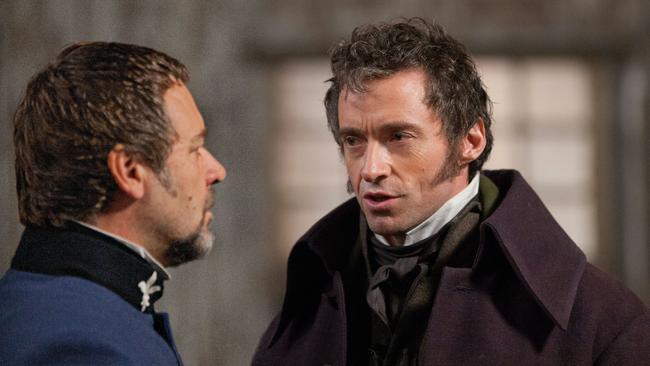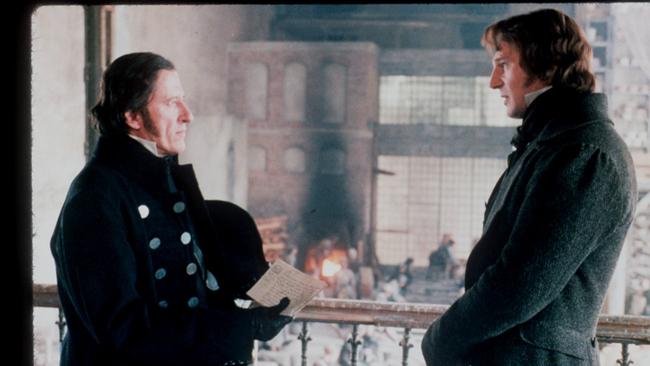Why Les Miserables is truly a one-man show
Victor Hugo based two central characters on the colourful double life of crook-turned-detective Eugene-Francois Vidocq.

One of the most popular London shows of the 1850s was a spectacular performance by the criminal-turned-private detective Eugene-Francois Vidocq that culminated in the elderly Frenchman clumping around the stage in the manacles and weighted boots he had worn as a prisoner.
Reformed villain, police informer, army deserter, duellist, pirate, cuckolder, convict, circus performer, gambler, gumshoe and fraudster, Vidocq lived one of the most colourful lives of the 19th century. After a career of undiluted crime, the jailbird went on to set up the world’s first detective agency, pioneering new methods of crime-fighting: Vidocq is widely seen as the father of modern criminology.
Last month a reworked (and less British) version of Les Miserables, the musical based on Victor Hugo’s great novel, opened in Paris. Since it first opened in 1985, the show has been staged in 53 countries and 22 languages, seen by more than 130 million people worldwide.
That is a tribute to the power of this tale of redemption and the skill of the composer Claude-Michel Schonberg and the lyricist Alain Boublil, but it is also a posthumous triumph for Vidocq, whose bizarre double life inspired Hugo and a slew of other 19th-century writers.
In Les Miserables, Hugo modelled both of his main male characters on Vidocq: the escaped convict-hero Jean Valjean and his relentless pursuer, Inspector Javert.
In 1828, Vidocq, by now pardoned and running a paper factory, saved one of his workers by lifting a heavily laden cart off him. That scene is replicated in Hugo’s novel, when Valjean saves the elderly Fauchelevent from being crushed to death. The prison guard-turned-police inspector Javert is watching, described by Hugo as “a marble informer, Brutus in Vidocq”. Much of the detail of Parisian low life in Hugo’s works emerged from conversations he had with Vidocq, the ultimate poacher-turned-gamekeeper.
Born in Arras in 1775, the son of a wealthy baker, Vidocq’s youth was thoroughly misspent, fighting, stealing and generally causing mayhem. According to his own highly unreliable memoirs, at the age of 13 Vidocq stole his parents’ savings and spent them in a single day, leading to his first incarceration.
After running away to join a group of travelling entertainers (he played a Caribbean cannibal), he became an itinerant pedlar and sometime privateer before enlisting in the army. Within six months he fought 15 duels, mostly as a result of his womanising. An expert fencer, he killed two of his opponents. (He was also a master of the French foot-fighting combat sport savate.)
He struck a senior officer, deserted and plunged into the criminal demimonde. In 1796, he was sentenced to eight years’ hard labour for forgery. He escaped, first disguised as a sailor and then, after his recapture, as a nun.
The next 10 years were spent either imprisoned or on the run. But in 1809, at the age of 34, Vidocq witnessed the execution of a friend and former thief and decided to go straight, or at least straighter. He became an underworld informer.
A stool pigeon in La Force prison, he passed intelligence on unsolved crimes to the police chief of Paris, who finally arranged his release, disguised as yet another escape.
As a highly paid undercover agent within the criminal fraternity, Vidocq secretly formed the Brigade de Surete (“Security Brigade”), which would evolve into France’s Surete Nationale. Vidocq was rumoured to be organising crimes and then tipping off police to arrest the perpetrators, but he successfully turned a criminal career into a thriving crime-fighting business. In 1817, the year he was officially pardoned by Louis XVIII, he was involved in 811 arrests, substantially reducing the Paris crime rate.

A decade later he quit the police, founded his factory employing ex-convicts, went bankrupt and then created Le Bureau des Renseignements (“Office of Information”), part investigative unit and part independent police force, the world’s earliest private detective agency. Vidocq’s agents (and agents provocateurs) repeatedly fell foul of the law and he was often arrested, but the former crook is credited with a series of breakthroughs in policing: undercover surveillance (including the use of female agents), ballistics, crime scene investigation, and keeping accurate criminal records. He was the first detective to use a plaster cast to track footprints.
Some of his work in anthropometrics – measuring parts of the human body for the purposes of identification – is still used by French police. He also commissioned two chemists to create paper for cheques that could not be forged.
Robert Peel, the founder of England’s Metropolitan Police, sent a commission to consult Vidocq in 1832. “Peelers” were later trained by his bureau.
Meanwhile, Vidocq became ever more famous, thanks to his talent for self-publicity. He ran as a candidate in the 1848 presidential election and garnered a single solitary vote, probably his own.
Vidocq’s memoirs ran to four volumes, inspiring numerous writers including Honore de Balzac (who became a close friend), Alexandre Dumas and Herman Melville. Charles Dickens partly modelled Magwitch in Great Expectations on the French criminal. Vidocq also inspired Edgar Allan Poe to create Auguste Dupin, the first detective in fiction (he is mentioned by name in The Murders in the Rue Morgue).
Vidocq adored the theatre, dreamt of being an actor and even sponsored his own theatre in Paris. But it was in Britain that he, and his bizarre life, first reached the stage: Vidocq! The French Police Spy opened at the Surrey Theatre in Lambeth in 1829, to a packed house.
Predictably enough, Vidocq died penniless, in obscurity, at the age of 81. Five years later, thanks to Hugo, he achieved literary immortality as Valjean and Javert, his life of contrasts split into two opposing characters: protagonist and antagonist, the criminal and the sleuth.
After being brought to musical life in Britain, Les Miserables has gone home to Paris, and so has Vidocq.
THE TIMES






To join the conversation, please log in. Don't have an account? Register
Join the conversation, you are commenting as Logout